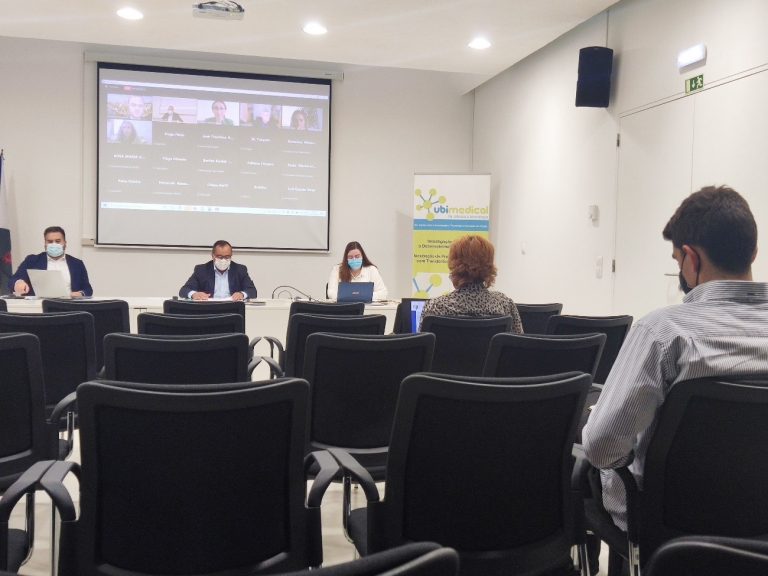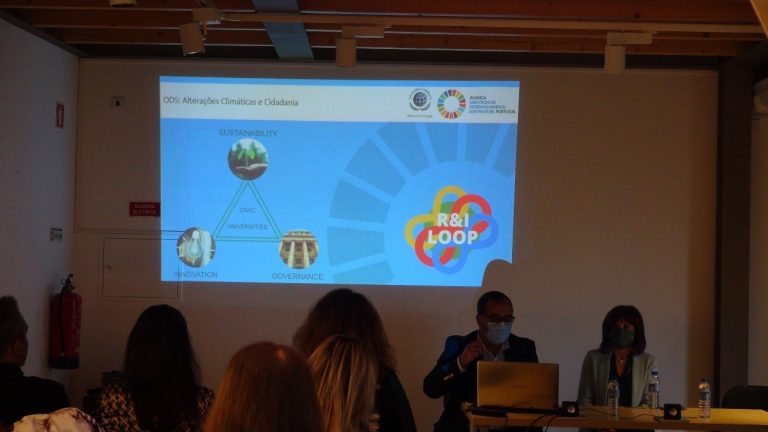On May 11, 2022, in the auditorium of the Escola Secundária Frei Heitor Pinto, in Covilhã (Portugal), took place a lecture on the theme: “Civic Universities and Sustainable Development Goals”. It was a key occasion for the R&I Loop coordinator, João Leitão, to introduce the central concept of the project: civic universities.
The lecture, part of the European Club of the Frei Heitor Pinto Secondary School, was organized by Carlos Aguilar, teacher and coordinator of the school’s European Club, and was given by João Leitão, professor and researcher of the University of Beira Interior and of the University of Lisbon.
After the initial presentations, as well as the discussion about the urgency of the topic, the audience, composed of about 40 students from Economics A classes, as well as some teachers from the school, had the opportunity to experience a small opening exercise in order to more easily awaken their senses to the challenges of climate and sustainability. After the opening exercise, João Leitão intervened, explaining the importance of a public and voluntary commitment of organizations in diverse areas, such as human rights, labour practices, environmental protection and anti-corruption measures.
After the first analysis and reflection, João Leitão commented on the importance of planet conservation, explaining the 2030 Agenda and the 17 Sustainable Development Goals (SDGs), going through and exploring each one of them, giving examples of their value as a form of common vision for the development of humanity. During his speech, João Leitão also addressed the R&I Loop project, which is supported by the Erasmus + programme, and addresses the theme of civic universities, uniting education, innovation, research and interaction with the community. He also explained the importance of an approach related to civic universities, and what are the three foundations of this new approach: innovation; governance; and sustainability.
To finish his speech, João Leitão also made a brief analysis of the positioning of Covilhã Municipality, in terms of compliance with the SDGs, through the use of the “ODSlocal” platform, since through it it is possible to analyse the contributions of each municipality in Portugal, as well as projects and good practices related to the 17 SDGs.








